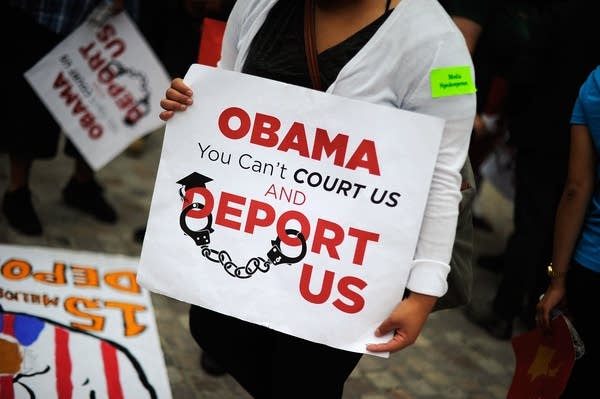How will Obama's immigration policy play out in election?

President Obama announced an immigration policy last week that will allow approximately 800,000 immigrants brought to the United States as children to obtain legal status in the country. His announcement comes before his speech June 22 at the annual conference of the influential National Association of Latino Elected Officials, in Orlando, Fla.
What are the politics behind this landmark decision and how will the GOP, and voters, respond?
Salon political reporter Alex Seitz-Wald joins The Daily Circuit Wednesday to talk about how this will play out in November.
Obama's new policy sets in place many of the changes legislators were trying to pass through the DREAM Act.
Create a More Connected Minnesota
MPR News is your trusted resource for the news you need. With your support, MPR News brings accessible, courageous journalism and authentic conversation to everyone - free of paywalls and barriers. Your gift makes a difference.
Seitz-Wald wrote about the politics behind the move for Salon:
DREAM-like policies are overwhelmingly popular. Just 1-in-10 Americans polled in a recent survey said they think that young people brought here illegally as children should not be allowed to remain in the country. Even three-quarters of Arizonans support it. Sen. Marco Rubio, the Cuban-American Republican from Florida, has attempted to bridge this gap by proposing a watered-down DREAM Act that Romney made noises about possibly supporting.
The new administration policy basically adopts the Rubio approach. The Democratic bill offered a clear path to full citizenship, Rubio's did not, and neither does the administration's move.
Mark Q. Sawyer, professor of African American studies and political science at UCLA and the director of the Center for the Study of Race, Ethnicity and Politics, will also join the discussion.
Join the conversation on Facebook.
